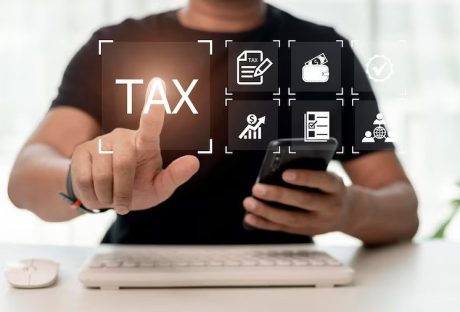The past year has been one of a kind with a global pandemic, countrywide lockdown, travel restrictions, and most importantly, market uncertainties. Yet, we experience one financial asset on the rise – Bitcoin.
This new-age digital currency saw a price recovery from almost $3000 to reach an all-time high of $62,000 in 2021. The rally of Bitcoin and other Cryptocurrencies doesn’t seem to run out despite their 600% price surge.
Yes, the current price is far below the $60,000 mark. But the possibility of Bitcoin hitting the next new all-time high is always there. Experts believe that this drop in the price is just a single step back to take three steps forward.
Putting the short-term volatility aside, financial gurus predict that the price of Bitcoin will reach $100,000.
Is 2021 The Most Critical Year For Bitcoin?
2021 has been a big year for cryptocurrencies. But what’s next?
We have seen Bitcoin breaking through all-time high prices several times, regulatory talks with the potential to impact the currency industry exponentially, and more institutional purchases.
Furthermore, the interest of people in the Cryptocurrency industry has skyrocketed in 2021. It has now become a hot topic of conversion among investors.
In many ways, the first half of 2021 has seen many breakthroughs. This has grabbed the attention of everyone on a global scale.
However, the Crypto industry is in its infancy phase, and there is still a lot of room to grow. Hence, it is difficult to predict where things are headed accurately.
Cryptocurrency Regulation
The governmental organization has accepted the benefits Cryptocurrency and Bitcoin bring to the table. The only thing that worries them is the security aspect. Lawmakers worldwide are trying to figure out how to establish laws that best outline the Cryptocurrency industry and keep it safe from cybercriminals.
Every nation sees Cryptocurrency in a different light. Some consider them illegal, while some are not clear about what to make out of them.
For instance, China has announced that trading in Cryptocurrency will be illegal completely. On the other hand, America has passed down a bill that sees Crypto profits as regular income, and people making Crypto profits will be liable to pay taxes.
If you are thinking of entering the Crypto market, perhaps this is the best time. The regulation of Cryptocurrency has become clearer. To start with your Crypto investment, you simply need to open an account and buy Cryptocurrencies.
Recent Development In Cryptocurrency Industry
In the first half of 2011, the Crypto economy has covered significant milestones. This includes the record-breaking price surge and smoother regulation. The industry expected to preserve the momentum even after it really came to an end.
Although we are in the last quarter of 2021, we have seen many noteworthy developments. A few of them are highlighted below.
- In late March, Visa announced that it would allow its users to use Cryptocurrency USD Coin, a Stablecoin whose value is pegged directly by the USD price evaluation.
- In March, PayPal announced that they are launching a feature that will allow the US user to use their Cryptocurrency assets to exchange goods and services on its online merchant internationally.
- In April, the Venmo platform announced that it is adding a feature to support Cryptocurrency.
The list just goes on. If you want to know more about the list, click here to read more.
The Future Of Cryptocurrency
We can spend the whole day speculating the value of Cryptocurrencies and still stay miles away from how they will perform. That’s how dynamic this industry is. Moreover, cryptocurrency is still in its infancy phase. So it is hard to predict how it will come up as the industry matures.
Being a new industry, there are just too many unexplored lands and unanswered questions. We have to be patient with the industry and try our best to guide it in the right direction.
Read Also:






















